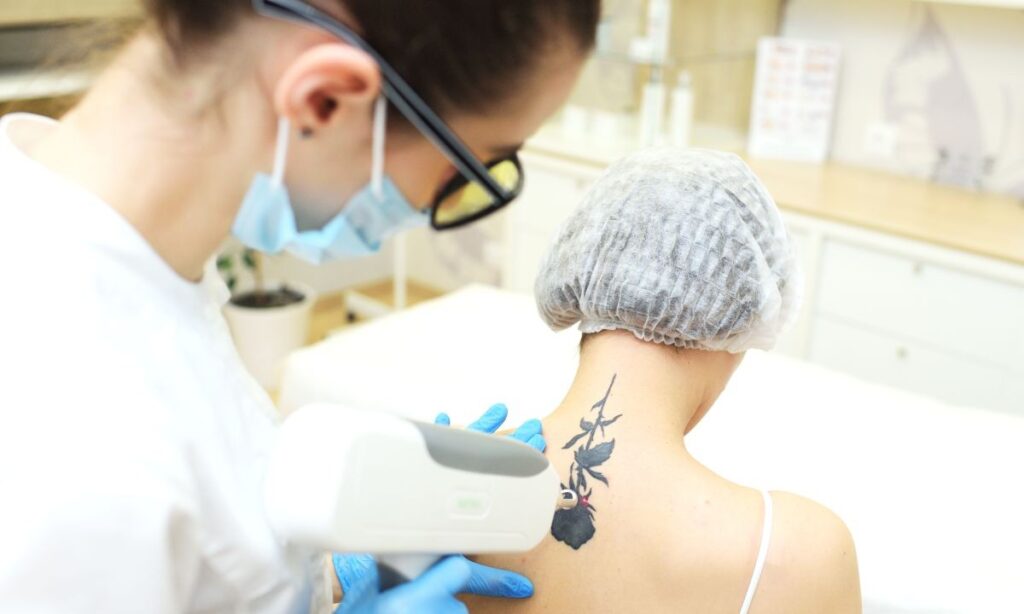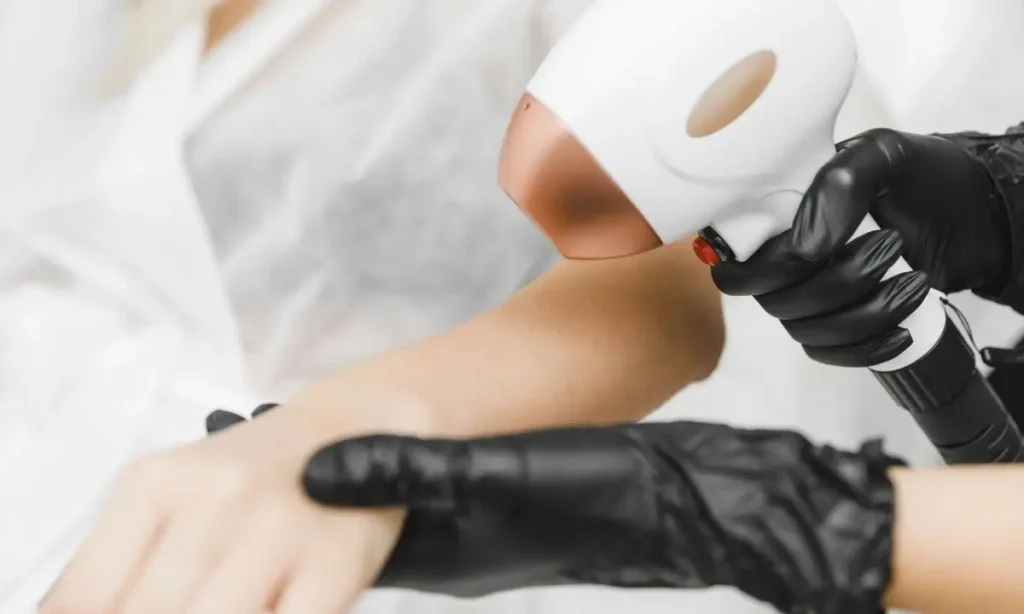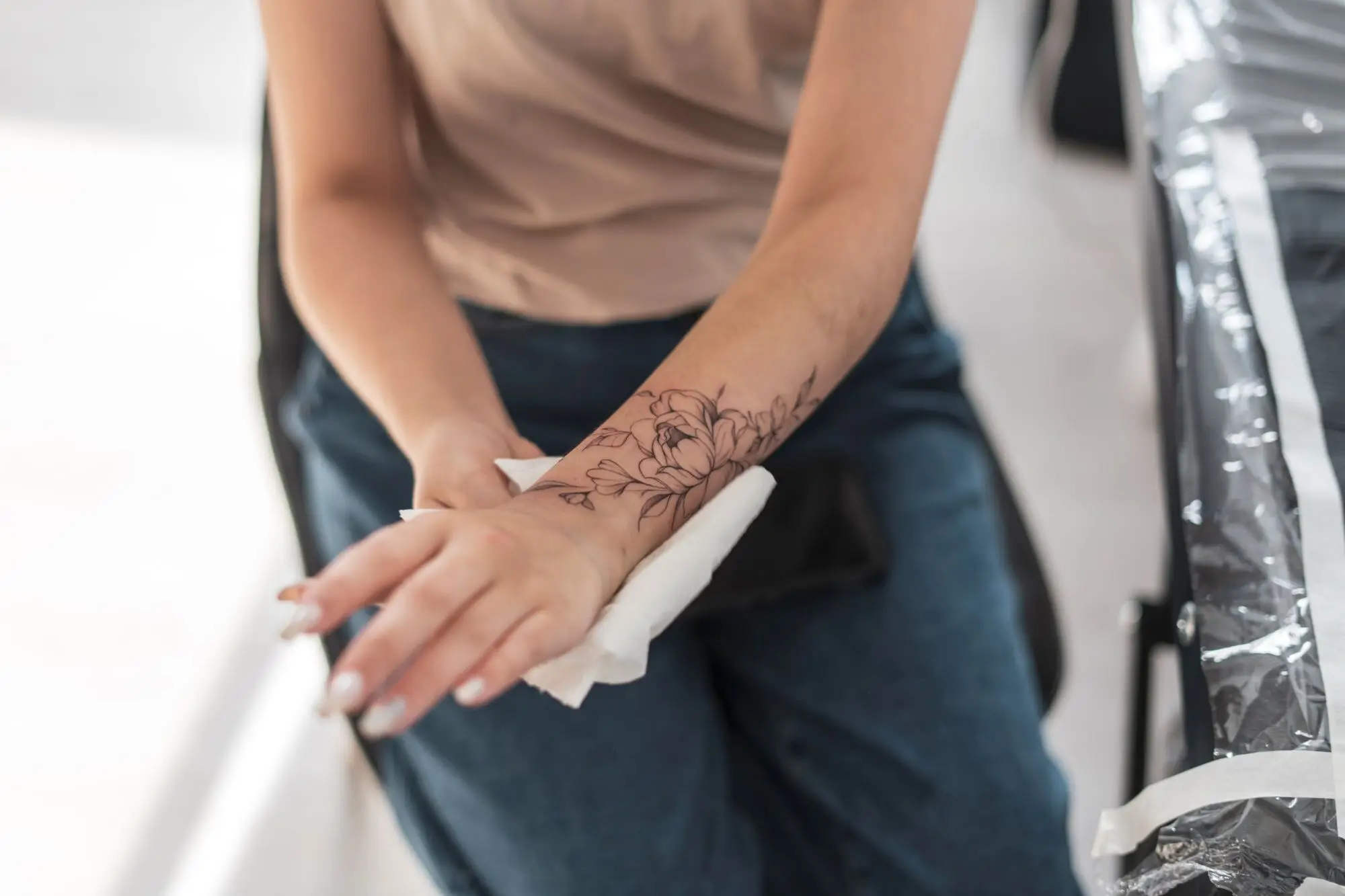Got a tattoo you regret? Maybe it’s for a job, a breakup, or you just don’t like how it looks anymore. Makeup can cover it temporarily, but if you want it gone for good, here’s what you need to know, from laser treatments to topical solutions.
Tattoo Removal Options
| Treatment | How It Works | Effectiveness | Side Effects |
| Q-Switch Laser | Breaks down ink with light pulses | Best option available | Some redness, might blister |
| PicoSure Laser | Not as deep as Q-Switch, shorter light bursts | Good to lighten or fade tattoos | Temporary redness, swelling |
| Injections | Chemicals injected into the skin | Poor, causes damage | Scarring, future removal is harder |
| Tattoo Removal Creams | Bleach agents are applied to the skin | Ineffective | Can irritate the skin |
Key Factors That Affect Tattoo Removal

How easily your tattoo comes off depends on:
- Darker colors are easiest to remove; green, blue, and yellow are more stubborn
- Older tattoos come off with less hassle since colors naturally fade over time
- Big tattoos and certain body placements can affect how many sessions you need
- Your immune system and liver need to work well to process broken-down ink
- Your skin color changes how we approach and customize your treatment plan
- Heavy, dark tattoos with dense ink take longer and more sessions to remove
Cost Of Tattoo Removal
A skilled dermatologist can examine your tattoo and give you an accurate cost estimate for your specific case. The final price depends on your tattoo’s size, colors, and location. Common costs per session are also dependent on the method:
- Q-Switch and PicoSure Lasers: About $300-$1,000
- Injection Procedures: Around $100-$600 (not medically recommended)
- Tattoo Removal Creams: Roughly $20-$100
Professional Advice
Our dermatologists at the Skin Cancer & Cosmetic Center of New Jersey have seen how gimmicky, at-home products don’t offer value-for-money outcomes. These typically bleach the skin without deeper penetration to erase the tattoo. We advise solutions that give you the permanent results you want without any dangerous side effects.
Why Laser Tattoo Removal Is the Best Option

Laser removal is the only method that breaks down ink particles so your body can naturally remove them. Other methods, like dermabrasion or injections, try to force ink out by damaging your skin. This often causes scarring and leaves ink behind. Lasers work with your immune system, which is why they’re safer and more effective.
How Laser Tattoo Removal Works
- Book Appointment: The doctor examines your tattoo and creates a plan.
- Assessment: They pick the right laser for your ink colors and skin type.
- Treatment: Quick laser zaps break ink into pieces that your body removes.
- Recovery: Wait six weeks between sessions for healing.
Variables Involved In Laser Tattoo Removal
Several factors affect how your laser tattoo removal will go. Here are the main things that determine your treatment plan:
- Why do some tattoos take longer to remove? Not all tattoos are black, so different lasers are needed for various colors. Colors absorb wavelengths of light at different rates, which affects how many sessions are needed.
- Can tattoo removal cause cancer? Current research shows no direct link between laser tattoo removal and skin cancer. The lasers used are non-ionizing, meaning they don’t damage DNA like radiation does.
- Why do treatments need to be spaced apart? Sessions are spaced 6 weeks apart to allow your skin time to recover. It takes time to remove a tattoo completely, and there will be sensitivity to the area during healing.
- What if I have liver problems? If you have liver issues, talk to your healthcare practitioner before seeking tattoo removal. The ink breaks down and gets processed through your liver. A struggling liver could have adverse effects.
How Safe Is Laser Tattoo Removal?

It’s a safe process when done by qualified professionals. Possible effects:
- Temporary redness and swelling
- Blisters (normal healing)
- Temporary skin color changes
- Infection (rare with proper care)
- Scarring (uncommon with good doctors)
Common concerns about cancer or liver health are understandable. However, healthy livers can handle tattoo removal safely, and laser treatments show no link to cancers.
How Painful Is Laser Tattoo Removal?
Most people say it feels like a rubber band snapping your skin repeatedly. Pain depends on your tolerance, tattoo location, size, and skin sensitivity. Your doctor can use numbing cream or cooling.
How Many Sessions Will I Need?
Most tattoos require 6–12 sessions for complete removal and start fading 4–6 weeks after treatment. Black tattoos typically need fewer sessions than colorful ones since dark ink responds better to laser treatment.
Laser Tattoo Removal Aftercare Tips

- Keep the area clean and dry
- Use the prescribed ointment
- Avoid the sun for several weeks
- Don’t pick blisters or scabs
- Drink water to help flush ink
Final Thoughts: Is Laser Tattoo Removal Right for You?
Laser removal works, but it needs patience. Pick an experienced dermatologist, follow all instructions, and protect the treated area until healed. Talk to a qualified doctor about your specific tattoo to help decide whether this procedure is right for you.
FAQs
Does laser tattoo removal hurt?
Most people describe it as feeling like a rubber band snapping against your skin. Numbing creams and cooling devices help reduce discomfort.
Will my tattoo be completely gone?
Most tattoos can be completely removed, though some may leave very faint marks depending on the ink and your skin.
Can darker skin tones be treated safely?
Yes, but you need a doctor experienced with different skin types to avoid color changes.
What if I’m prone to scarring?
Tell your doctor about your scarring history so they can adjust treatment settings and provide special care instructions.
Does laser tattoo removal cause cancer?
No, research shows no connection between laser tattoo removal and cancer.
Is laser tattoo removal bad for your liver?
Healthy livers handle it fine, but people with liver disease should check with their doctor first.
Can laser tattoo removal be done in one session?
No, you need multiple sessions spaced 6–8 weeks apart for proper healing.
What are the risks of laser tattoo removal?
You may experience temporary skin color changes, possible infection, and rare scarring with qualified treatment.
What are the facts about laser tattoo removal?
It’s the best removal method available, takes multiple sessions, and is safe with experienced professionals.
How do I book an appointment for laser tattoo removal?
Contact us using our online portal to get started or ask any questions.

